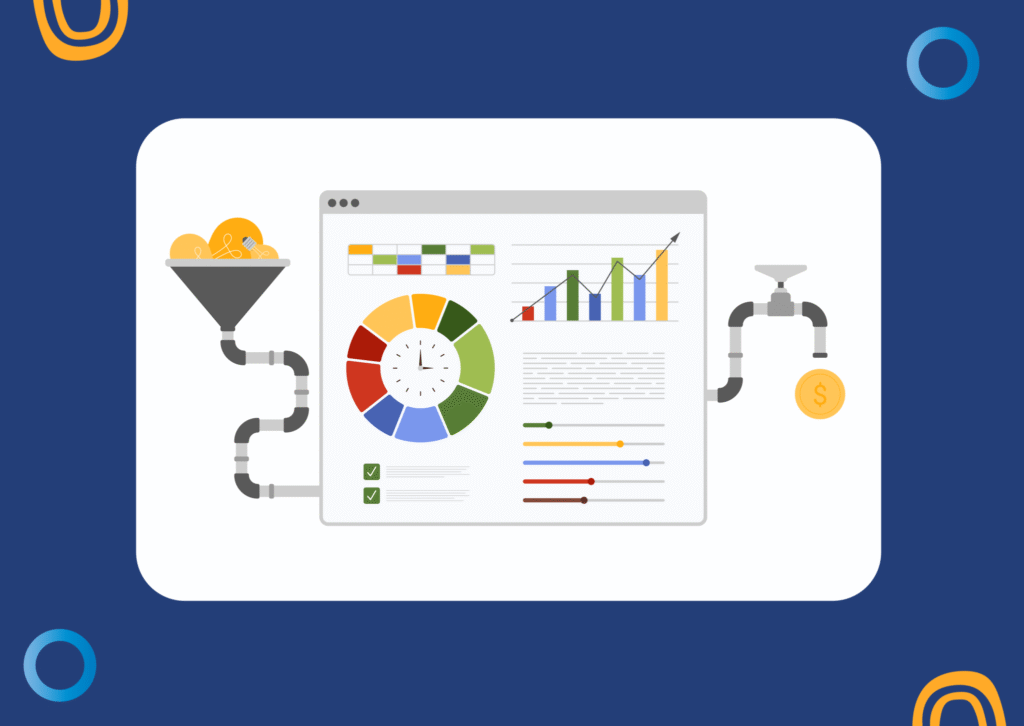In the world of SaaS sales, speed and efficiency are everything. But too often, promising leads stall somewhere along the way—and deals either get delayed or die out entirely. If you’re seeing inconsistent conversions, long sales cycles, or low pipeline velocity, the issue could be one or more bottlenecks in your sales pipeline.
The good news? Most pipeline problems are fixable with the right strategies and tools.
Let’s explore five of the most common bottlenecks in SaaS sales pipelines—and how your team can eliminate them for smoother, faster deal flow.
1. Poor Lead Qualification
The bottleneck: Not every lead is sales-ready. But many SaaS teams waste time chasing the wrong prospects—burning resources on users who will never convert.
Why it happens:
- ● Vague Ideal Customer Profiles (ICPs)
- ● Inadequate lead scoring models
- ● Overreliance on static web forms or outdated MQLs
How to fix it:
- ● Clearly define your ICP and align sales + marketing around it
- ● Use behavior-based lead scoring instead of just demographic filters
- ● Automate qualification using conversational AI (like Drift, Intercom, or DemoKraft AI) that pre-screens visitors based on their responses and intent signals
Better qualification = more pipeline clarity and less sales team frustration.
2. Lack of Personalization in Outreach
The bottleneck: Your sales outreach feels generic, and as a result, gets ignored. You’re sending more emails, but booking fewer calls.
Why it happens:
- ● Rushed outbound processes
- ● Using templates without adapting to buyer context
- ● No real understanding of pain points
How to fix it:
- ● Personalize your messaging based on industry, use case, and role
- ● Leverage tools like Apollo or Clearbit for better data enrichment
- ● Use AI to generate tailored outreach that resonates with specific buyer personas
In a saturated SaaS market, personalization isn’t optional—it’s your differentiator.
3. Long Sales Cycles with No Clear Milestones
The bottleneck: Deals drag on for weeks—or worse, go dark. You’re unsure where the buyer stands.
Why it happens:
- ● No clear buyer journey mapped
- ● Sales team isn’t setting the next step in every conversation
- ●Lack of urgency or decision-making triggers
How to fix it:
- ● Map a clear SaaS sales process with defined stages and exit criteria
- ● Use mutual action plans (MAPs) with buyers to outline next steps and deadlines
- ● Automate follow-ups using email sequences or CRM triggers
A structured process reduces ghosting and keeps momentum high.
4. Demo-to-Close Dropoff
The bottleneck: Prospects attend your product demo—but never convert.
Why it happens:
- ● Demos focus on features, not problems
- ● Too much technical detail, too soon
- ● Buyers aren’t seeing ROI clearly
How to fix it:
- ● Shift from product-led demos to solution-focused conversations
- ● Customize the demo to the buyer’s use case and challenges
- ● Follow up with a tailored summary and relevant case studies
Also consider using on-demand video demos with tools like DemoKraft AI to let leads self-educate before talking to sales.
5. Disconnected Marketing and Sales Teams
The bottleneck: Your marketing team delivers leads—but sales says they’re low-quality. The result? Finger-pointing and broken trust.
Why it happens:
- ● No shared definition of qualified leads
- ● Siloed data and goals
- ● Misaligned messaging
How to fix it:
- ● Create a Service Level Agreement (SLA) between marketing and sales
- ● Use one shared CRM and define clear lead handoff rules
- ● Meet weekly to review pipeline quality and lead feedback
Alignment isn’t a luxury—it’s a SaaS growth driver in sales pipelines.
Final Thoughts: Smooth Pipelines = Scalable Revenue
Your sales pipeline is more than just a list of leads—it’s your growth engine. Every stalled deal or delayed decision is a sign to dig deeper, diagnose the cause, and remove the friction.
By identifying and fixing these common bottlenecks, you not only accelerate sales velocity—you build a pipeline that can actually scale.
Want a more efficient SaaS sales process? Start by clearing the blocks.

